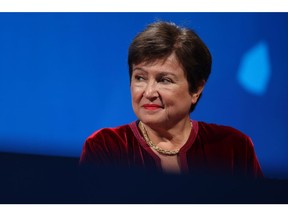Socioeconomic conditions in the occupied Palestinian territory are growing more dire, the United Nations Conference on Trade and Development (UNCTAD) warned on Tuesday, as the financial fallout of the coronavirus pandemic compounds an already bleak economic landscape.
“Even before the economic shock due to the coronavirus disease [COVID-19] pandemic, the [Palestinian] economy was expected to slip into recession in 2020 and 2021,” UNCTAD wrote in its latest report (PDF) on assistance to the Palestinian people.
That outlook darkened further, said UNCTAD, as a result of several factors: annexation of large areas of the Israeli-occupied West Bank, the economic damage wrought by measures to contain the spread of COVID-19, faltering aid flows as donors are squeezed financially by the pandemic, and an onerous customs union with Israel that leads to hundreds of millions of dollars of Palestinian tax revenue leaking to Israel’s treasury.
Khalil Fatayer, 83 and one of the oldest Palestinian soap makers in Nablus, arranges bars of soap at his shop in the old quarters of the occupied West Bank city [File: JAAFAR ASHTIYEH /AFP]
“The ‘pre-existing conditions’ in the occupied territories are essentially malignant. And they will get worse over the coming years as the consequences of COVID-19,” said Richard Kozul-Wright, director of UNCTAD’s division on globalisation and development strategies.
“Inequality, indebtedness, insecurity, [and] insufficient investment have been long-standing problems in the Palestinian occupied territories,” he told a news briefing.
Palestinian health officials have reported 215 deaths from COVID-19 and more than 35,000 infections across the West Bank, Gaza and East Jerusalem, territory Israel captured in the 1967 Middle East war.
A UN aid group has warned that a lack of key medical items in Gaza could make it hard to treat the disease effectively.
“The situation in the occupied Palestinian territories is going from bad to worse,” Mahmoud Elkhafif, UNCTAD’s coordinator of the assistance to the Palestinian people, told the briefing.
An economy under siege
The occupied Palestinian territory is tied into a customs union that allows Israel to control some two-thirds of Palestinian tax revenues.
UNCTAD estimates that prior to the pandemic, this arrangement resulted in the leakage of hundreds of millions of dollars of Palestinian financial resources to Israel’s treasury, equalling some 3.7 percent of Palestine’s annual economic output as measured by gross domestic product (GDP), or 17.8 percent of total tax revenues.
This already substantial loss was exacerbated by a depression-level unemployment rate that hit 33 percent in 2019.
Donor help has also plummeted in recent years, from a high of 32 percent of GDP in 2008 to 3.5 percent in 2019.
This year, as the pandemic ravages economies around the globe, donor support is expected to decline to $266m, “the lowest in more than a decade,” said Elkhafif.
By April 2020, revenues collected by the Palestinian National Authority from trade, tourism and transfers had declined to their lowest levels in 20 years, it said.
To allow for expansion of Israeli settlements in the West Bank, the Israeli zoning and planning regime “makes it nearly impossible for Palestinians to obtain permits to build in their own land for any purpose”, the report noted.
Last year, Israel demolished or seized 622 Palestinian structures in the West Bank, it said.




















Comments